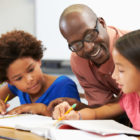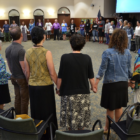
Breaking walls, building bridges: A call for restorative justice in school discipline
|
Imagine waking up each morning with no hope for the day ahead, navigating a minefield of potential conflicts with your body on high alert. That was my reality as a marginalized youth — misunderstood, labeled as a troublemaker and cast out without a chance to reconcile and evolve. Growing up with anxiety in school is an all-too-common experience that perpetuates a cycle of fear and resentment. It’s time to acknowledge and address this narrative that adversely affects our youth’s learning experiences and the education system. Restorative justice programs are part of the solution.

